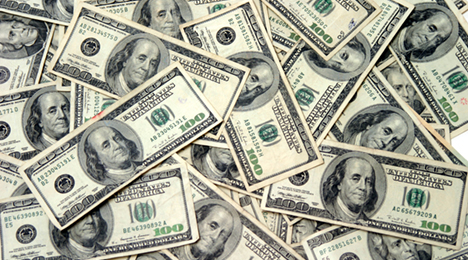Another rate pass by Fed; 2 experts discuss future ramifications

By subscribing, you agree to receive communications from Auto Remarketing and our partners in accordance with our Privacy Policy. We may share your information with select partners and sponsors who may contact you about their products and services. You may unsubscribe at any time.
ATLANTA and WASHINGTON, D.C. –
Perhaps what Equifax chief economist Amy Crews Cutts shared about the thinking of most observers means the Federal Reserve will deliver finance companies the gift of an interest rate adjustment a little more than a week before Christmas.
With the Federal Open Market Committee choosing not to make a short-term interest rate change this week — keeping it at or below 0.25 percent — there are only two more chances for the group to increase the level. The committee gathers Oct. 28-29 and again on Dec. 15-16.
In a message to SubPrime Auto Finance News, Crews Cutts indicated most economists now believe a rate increase will occur in December
“The Fed delayed increasing short-term rates at this week’s meeting of the Federal Open Market Committee, but strongly indicated that they would likely do so before the end of the year. Importantly the members of the FOMC have greatly lowered their forecast for interest rates over the next several years,” she said.
“Short-term rates have little impact on the costs for most consumer loans, with the exception of loans based on the prime rate of interest, which adds 3 percentage points to the federal funds target rate, the rate set by the Fed,” Crews Cutts continued.
While the activities of the Fed certainly impact behavior on Wall Street, Crews Cutts also shared what she believes matters more to potential vehicle buyers and auto loan borrowers than what the Fed does with short-term interest rates. She pointed to what happens to longer-term interest rates, “which depend on inflation expectations and global investors, not the Fed.”
Subscribe to Auto Remarketing to stay informed and stay ahead.
By subscribing, you agree to receive communications from Auto Remarketing and our partners in accordance with our Privacy Policy. We may share your information with select partners and sponsors who may contact you about their products and services. You may unsubscribe at any time.
Crews Cutts explained that “When global investors get spooked, for example when the Chinese stock market plunged in recent weeks, they seek the safety of U.S. Treasury bonds, which temporarily dropped our interest rates — great news for borrowers.”
Cox Automotive chief economist Tom Webb shared a similar assessment of the week’s events with SubPrime Auto Finance News, reiterating a portion of what he discussed nearly month ago in Manheim’s Auto Industry Brief.
“It wasn’t a surprise since I think everyone thought it was a coin toss going in,” Webb said. “Some people were taken aback by the commentary that surrounded it, attributing it to global economic conditions as opposed to our domestic conditions. But again, that’s certainly not surprising since we expected that if they didn’t raise it, that would be the main reason."
Webb still sees a major question being whether the Fed makes a move before Halloween or prior to closing stages of the holiday shopping season.
“The biggest things we have to concern ourselves with are the macroeconomic implications,” Webb said. “It’s not industry specific in terms of retail financing etc. But even if there is an acknowledgement that at some point once you raise rates, you can still have market turmoil. That seems rather confusing but that does in fact happen.
“(Thursday’s) move certainly didn’t cause that. It would have been curious as to what would have been the reaction had they raised it. Would the market been materially different? I don’t know,” he went on to say.
Committee members acknowledged that information they received since their last meeting in July suggests that economic activity is expanding at a moderate pace. They added that on balance, labor market indicators show that underutilization of labor resources has diminished since early this year.
The Fed group reiterated that consistent with its statutory mandate, the committee seeks to foster maximum employment and price stability. So all but one of the 10 members voted not to make an interest rate change. The only one supporting an increase this week was Jeffrey Lacker, president of the Federal Reserve Bank of Richmond
“Let me again emphasize that the specific timing of the initial increase in the target range for the federal funds rate is far less important for the economy than the entire expected path of interest rates,” Federal Reserve chairman Janet Yellen said. “And once we begin to remove policy accommodation, we continue to expect that economic conditions will evolve in a manner that will warrant only gradual increases in the target federal funds rate.
“Most participants continue to expect that economic conditions will make it appropriate to raise the target range for the federal funds rate later this year, although four participants now expect that such conditions will not be seen until next year or later,” Yellen continued.
Yellen capped off her prepared remarks following the committee’s decision by making one last point.
“I would like to underscore that the forecasts of the appropriate path of the federal funds rate, as usual, are conditional on participants’ individual projections of the most likely outcomes for economic growth, employment, inflation and other factors,” she said.
“But our actual policy actions over time will depend on how economic conditions evolve, which is quite uncertain,” Yellen added.


